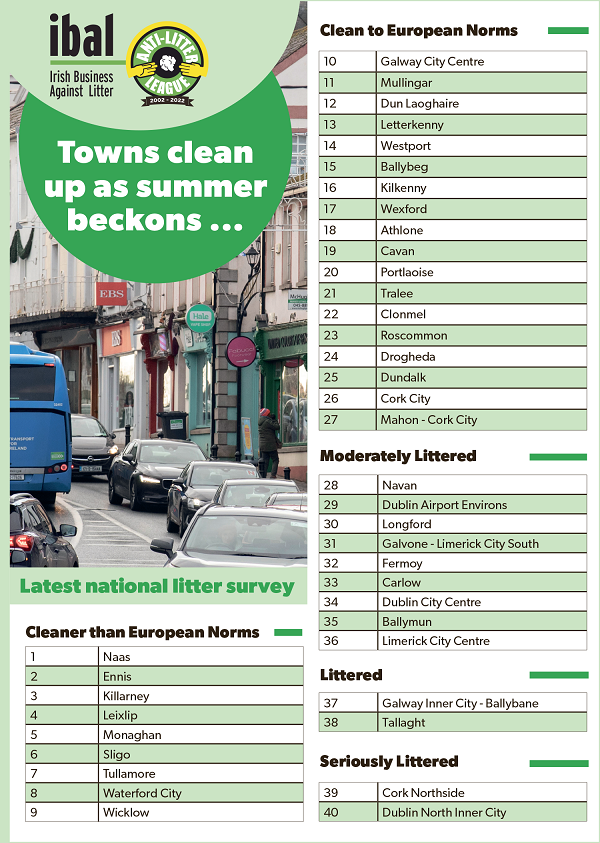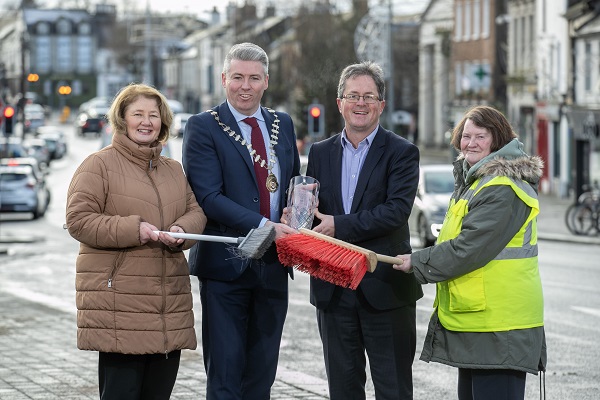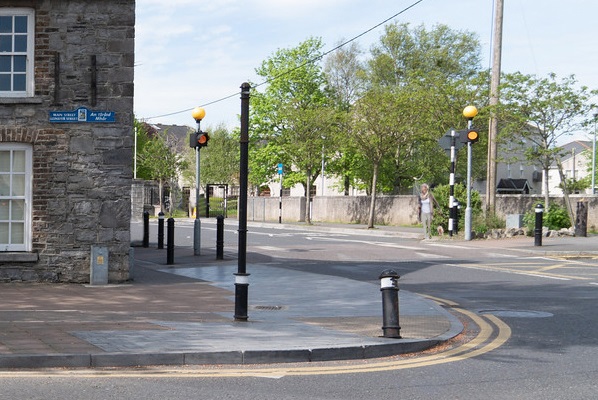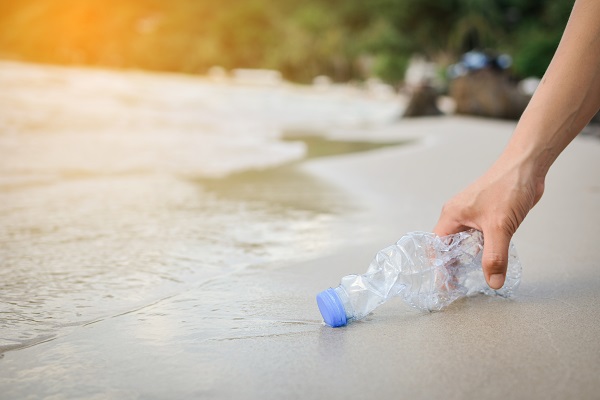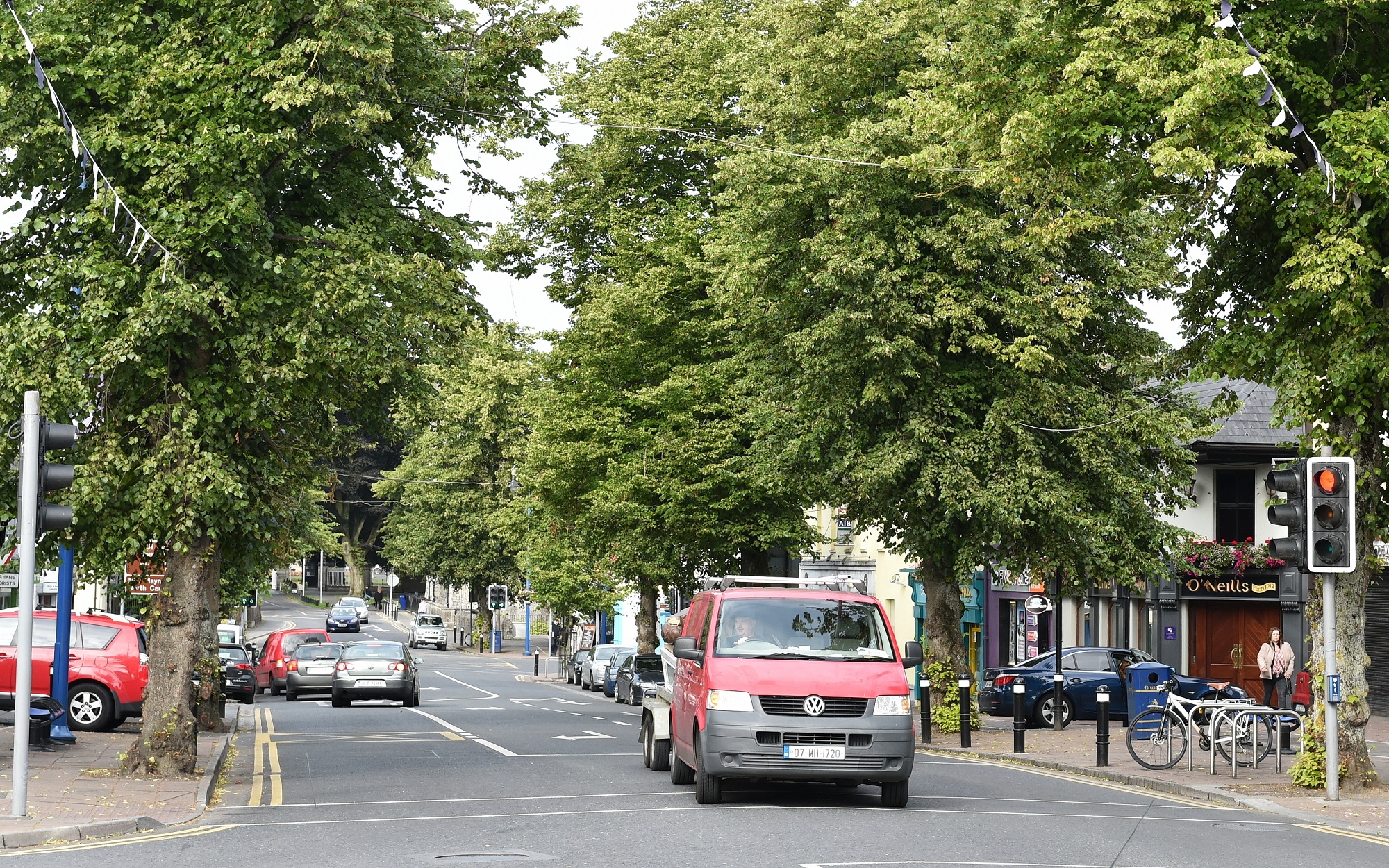
Litter survey shows cleaner towns await our summer visitors but inner city areas deteriorate
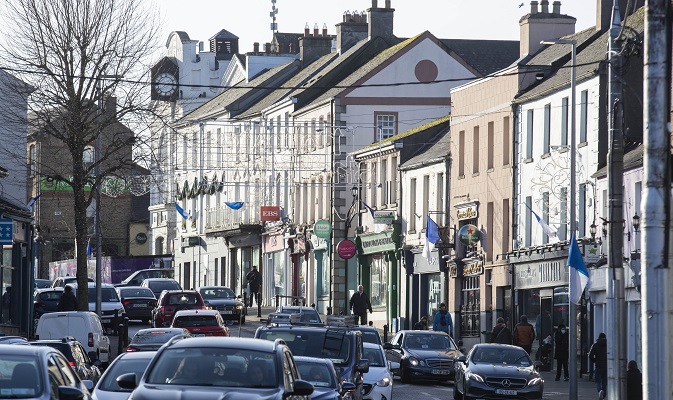
- Dublin and Cork City Centres are clean for peak tourist season
- “No progress likely in North Inner City without ban on bags”
- Plastic bottles and cans remain, despite Deposit Return Scheme
The latest survey from business group Irish Business Against Litter (IBAL) reveals more towns are clean than last year and the number of areas deemed littered or worse is at its lowest in 5 years. While Dublin and Cork city centres have improved in advance of the peak season for visitors, the Capital’s North Inner City and Cork Northside have both deteriorated and are “seriously littered”.
Naas was once again top of the ranking of 40 towns and cities, ahead of Ennis and Killarney. Overall, two-thirds of towns were clean, which was up on 2024. Only 4 areas were branded littered or seriously littered, among them Ballybane in Galway and Tallaght in Dublin, which suffered a dramatic fall on last year.
“It is particularly encouraging to see areas like Roscommon town and Mahon in Cork making the grade, having fallen short in recent years” says IBAL’s Conor Horgan. “Another positive finding was that our main city centres – Dublin and Cork – have improved as we welcome summer visitors to our country. Clean streets are imperative, given the challenges facing Ireland as a high-cost destination.”
According to the An Taisce report for Dublin City Centre, “considerable improvements were noted at sites previously deemed as heavily littered, among them sites on Middle Abbey Street, O’Connell Street, Nth. Frederick Street and beside the Jervis Luas.” Dumping on Dominic Lane and a littered basement on Parnell Square prevented the Capital from attaining “clean” status.
However, the environs of Dublin Airport, normally clean, were this time found by the An Taisce inspectors to be ‘moderately littered’.
Cork Northside, previously littered, fell to seriously littered, while DubIin’s North Inner City, also seriously littered, remains rooted to the foot of the rankings. Only 2 of the 25 sites surveyed in the area warranted a ‘clean’ grade – the lowest number in years. Among the litter blackspots found were Spencer Dock, which suffered from dumping of household items; Dorset Lane, where large black sacks, a mattress and clothing items were strewn about; and the environs of the Royal Canal, where sacks of rubbish and other miscellaneous items, including some tents, featured among the litter.
Bags and basements
Conor Horgan comments: “Unfortunately litter was everywhere in the North Inner City, in stark contrast to the City Centre just a few streets away. The negative impact of waste collection by bags instead of bins appears greater than ever, with scavenging by gulls a persistent problem.
“No progress is likely in the North Inner City without a ban on bags. We need the Council to come good on its intention to convert the entire city to bin collection services. In addition, it is high time that appropriate legal changes were brought into effect to allow the council to pursue those responsible for littered basements, an age-old blight on our Capital City.” Dublin City Council plans to eliminate bag collections by the end of next year.
One year on from the introduction of the Deposit Return Scheme, plastic bottle and can litter is down 50% on previous levels but was still found in 20% of the 500-plus sites surveyed across the country. “We hope that the scheme will see the disappearance of this litter, but statistics so far do not bear this out. Cans and plastic bottles are far from a rare sight on our streets and in our hedgerows,” says Conor Horgan.
While the prevalence of coffee cups on our streets remains stubbornly high, there was a fall-off in disposable vape litter. The UK and Northern Ireland outlawed disposable vapes earlier this month and a ban here is likely in the coming months.
The survey found the main streets of towns to be generally clean, as were heritage and amenity sites. Residential areas, bus and train stations and recycle facilities were most likely to be littered.
ENDS
For An Taisce reports of individual areas see www.ibal.ie/anti-litter-league
Contact Conor Horgan on 086 8217211, [email protected]
Editors note:
Set up in 1996, Irish Business Against Litter is an alliance of companies sharing a belief that continued economic prosperity – notably in the areas of tourism, food and direct foreign investment – is contingent on a clean, litter-free environment.
As part of the IBAL Anti-Litter League, An Taisce monitors towns independently and in accordance with international grading standards.
